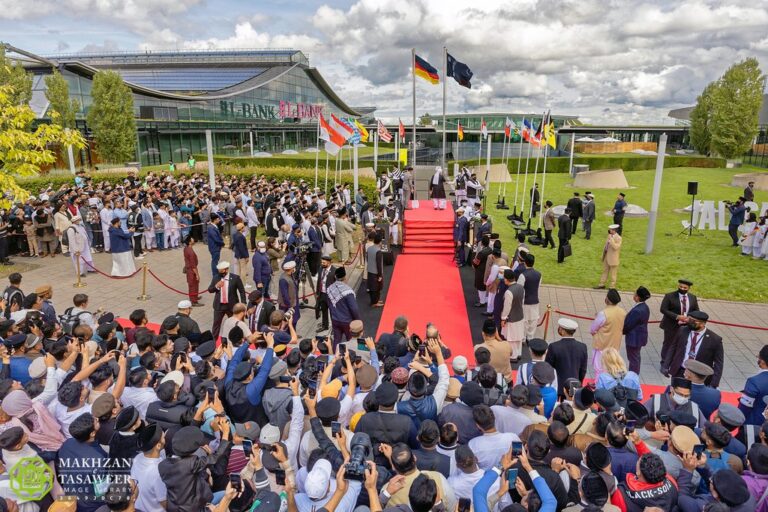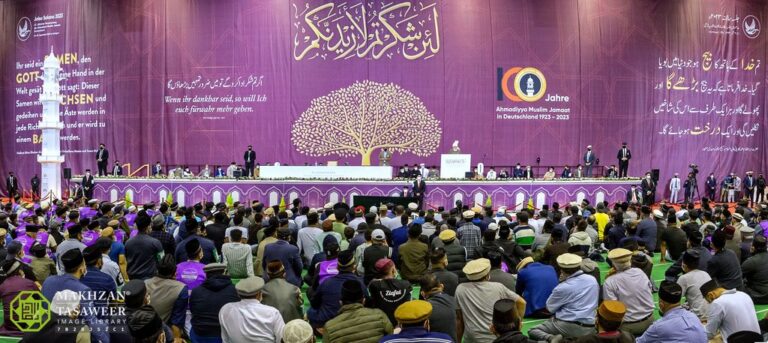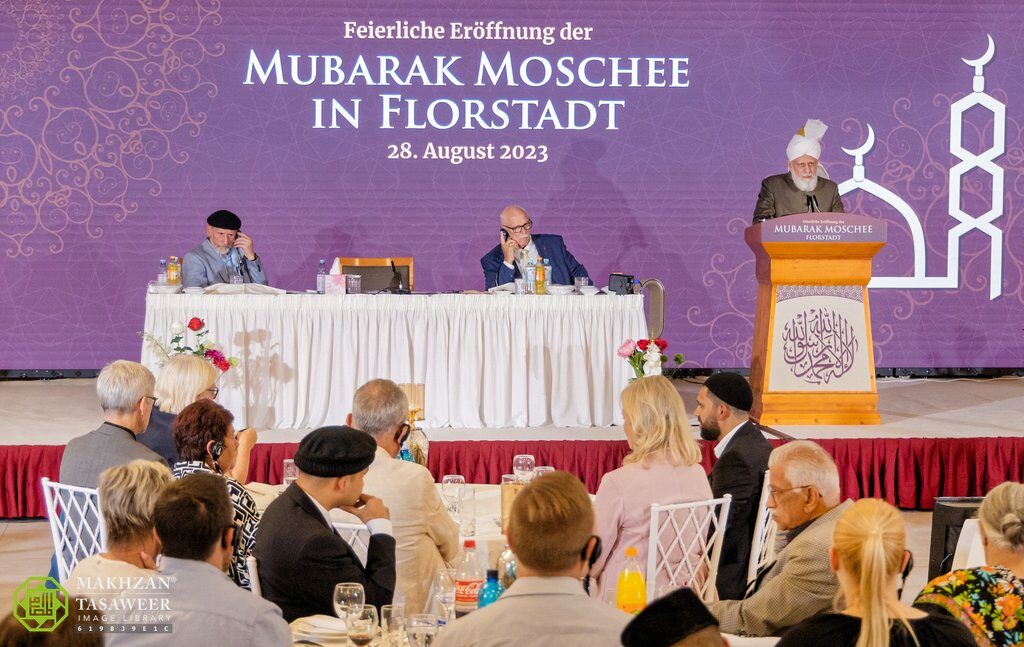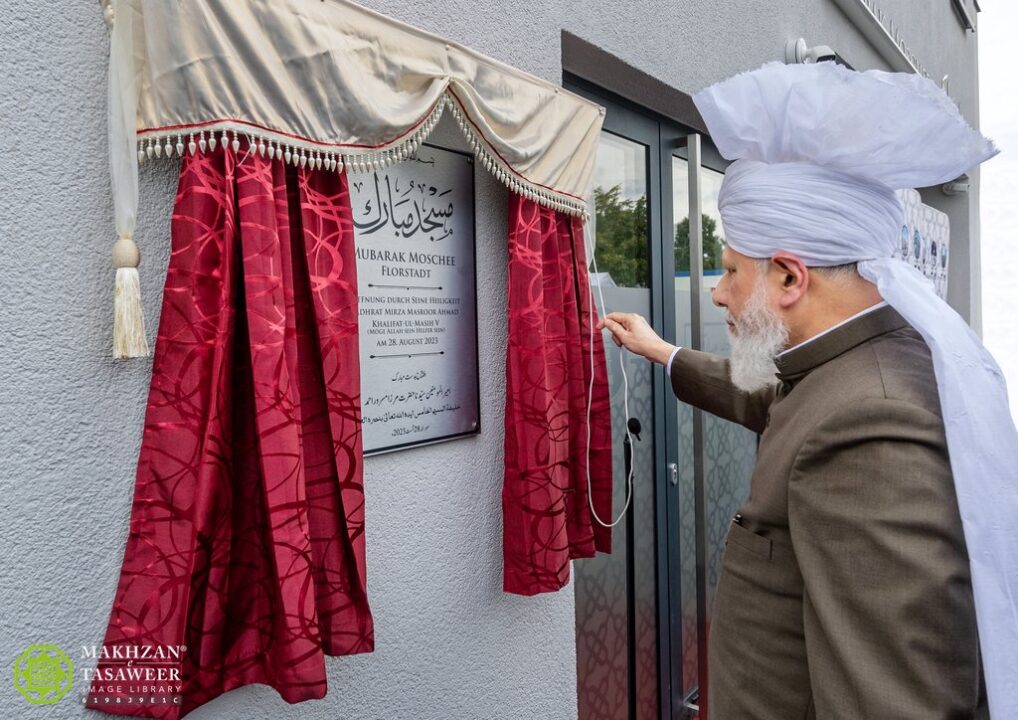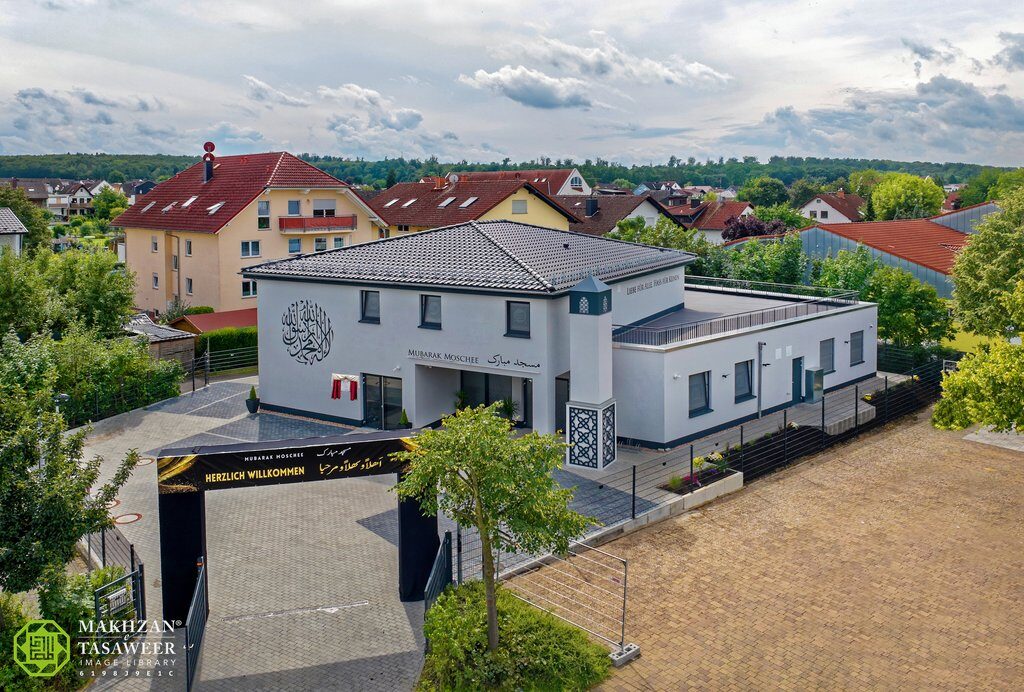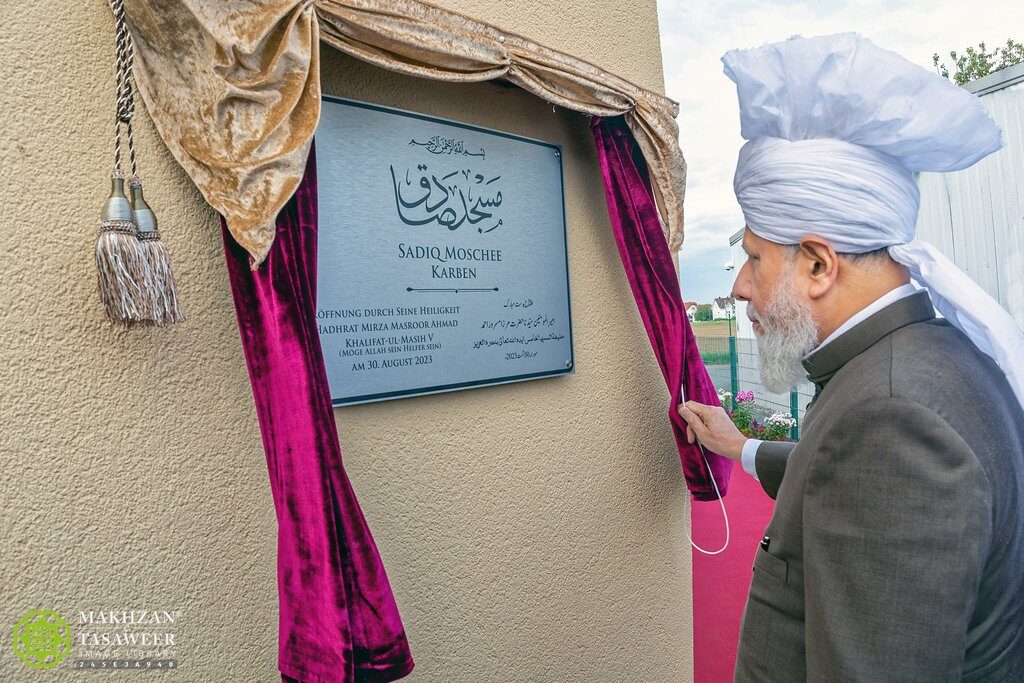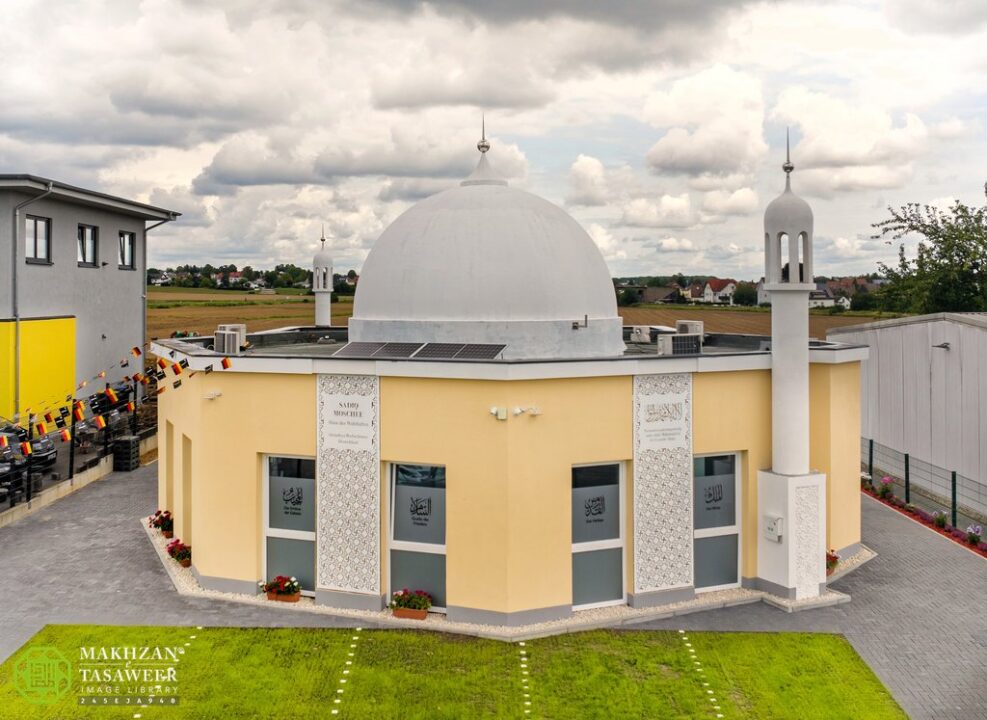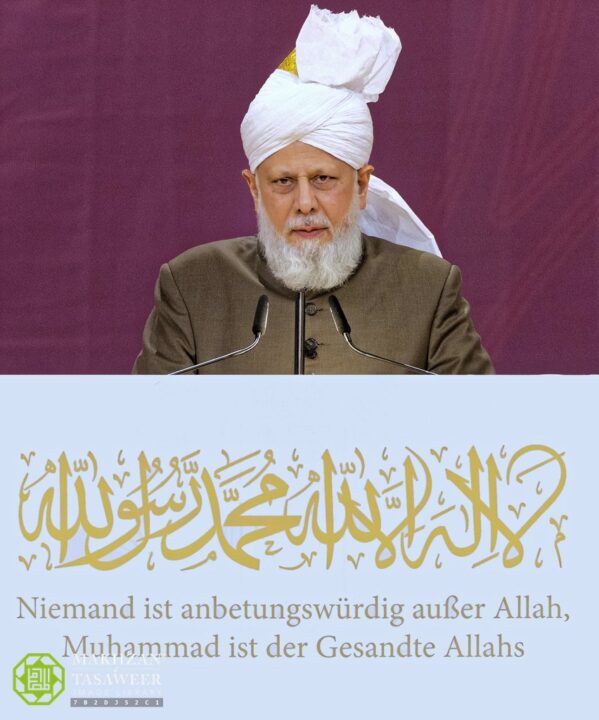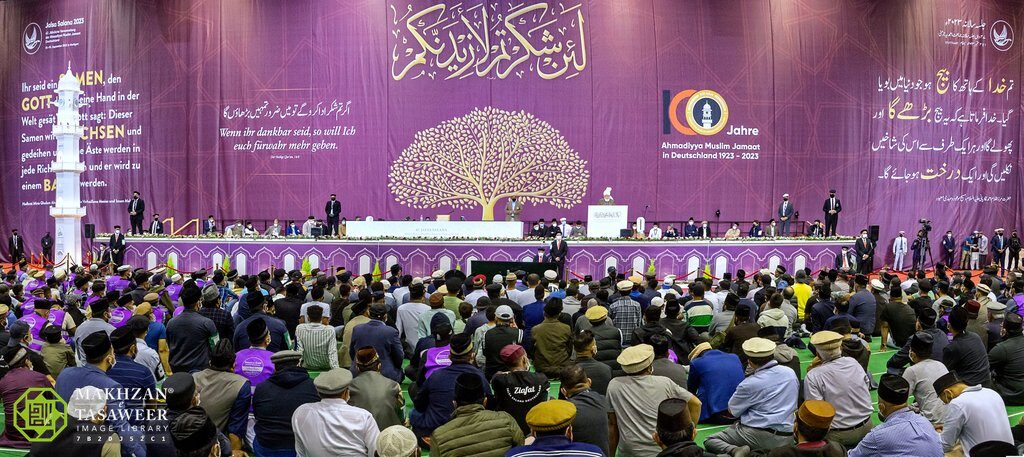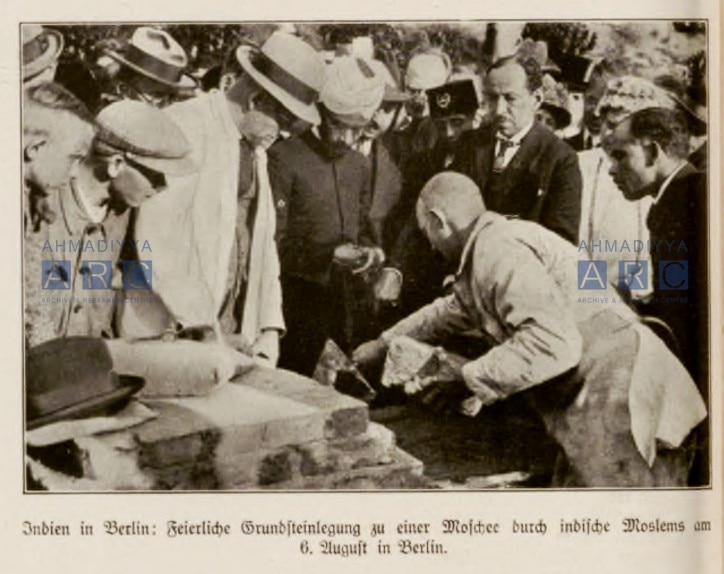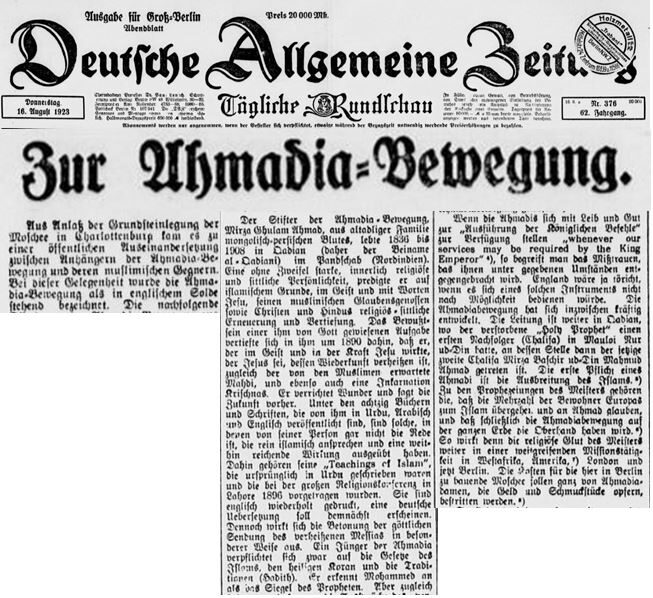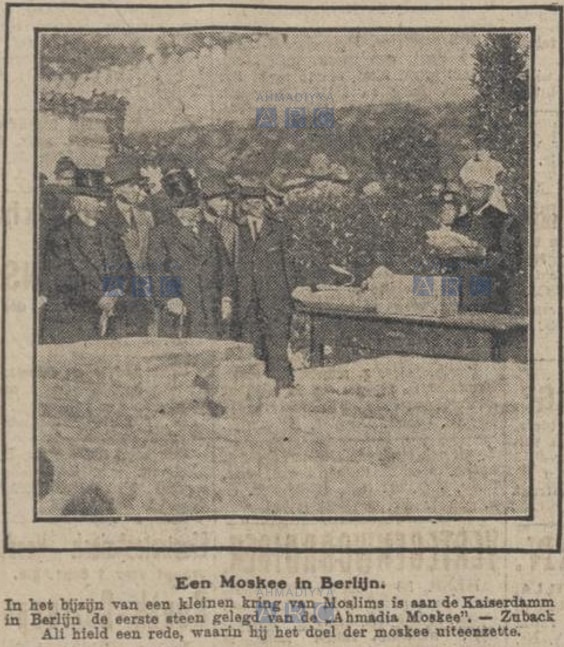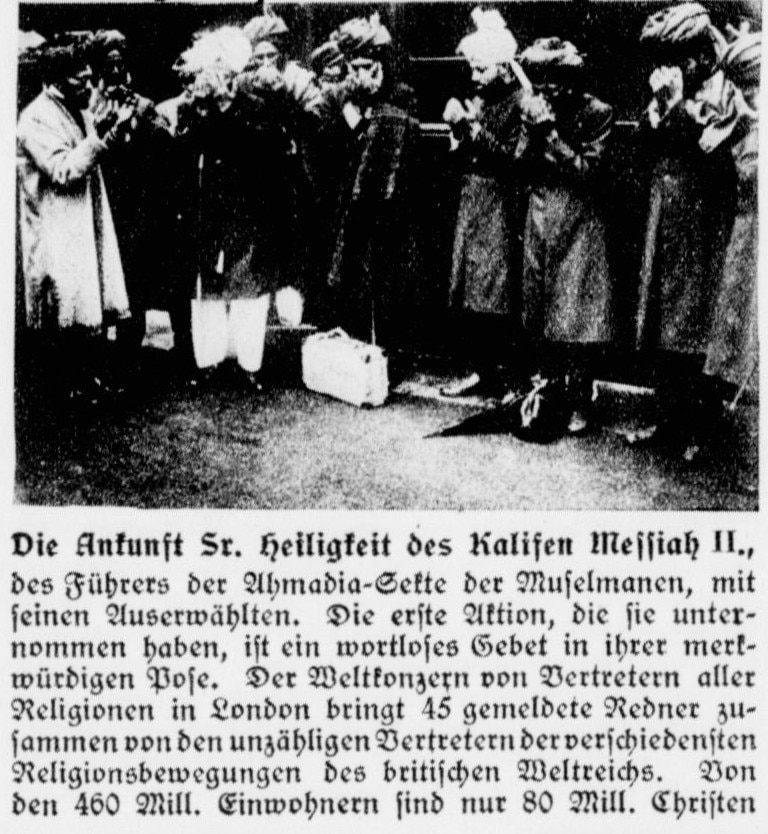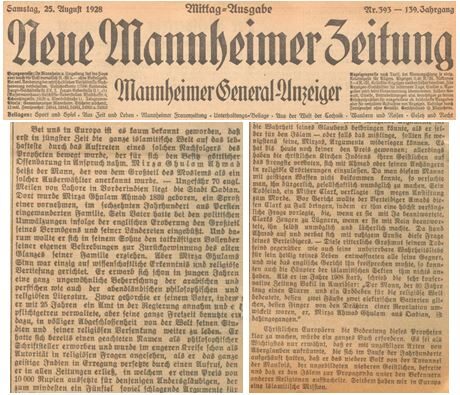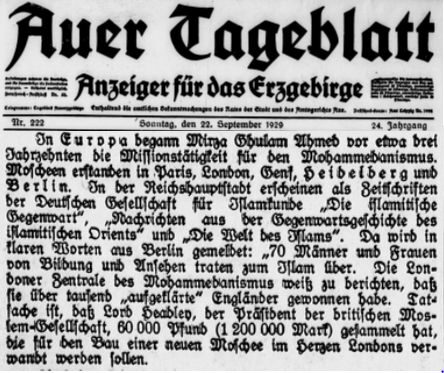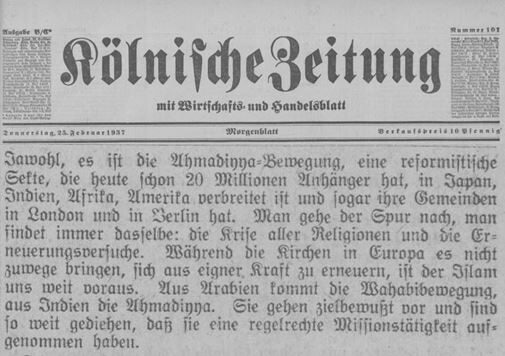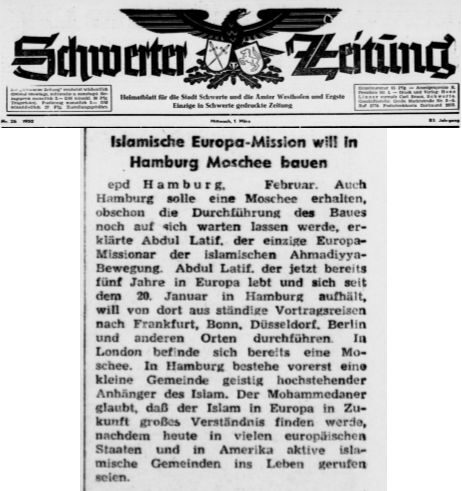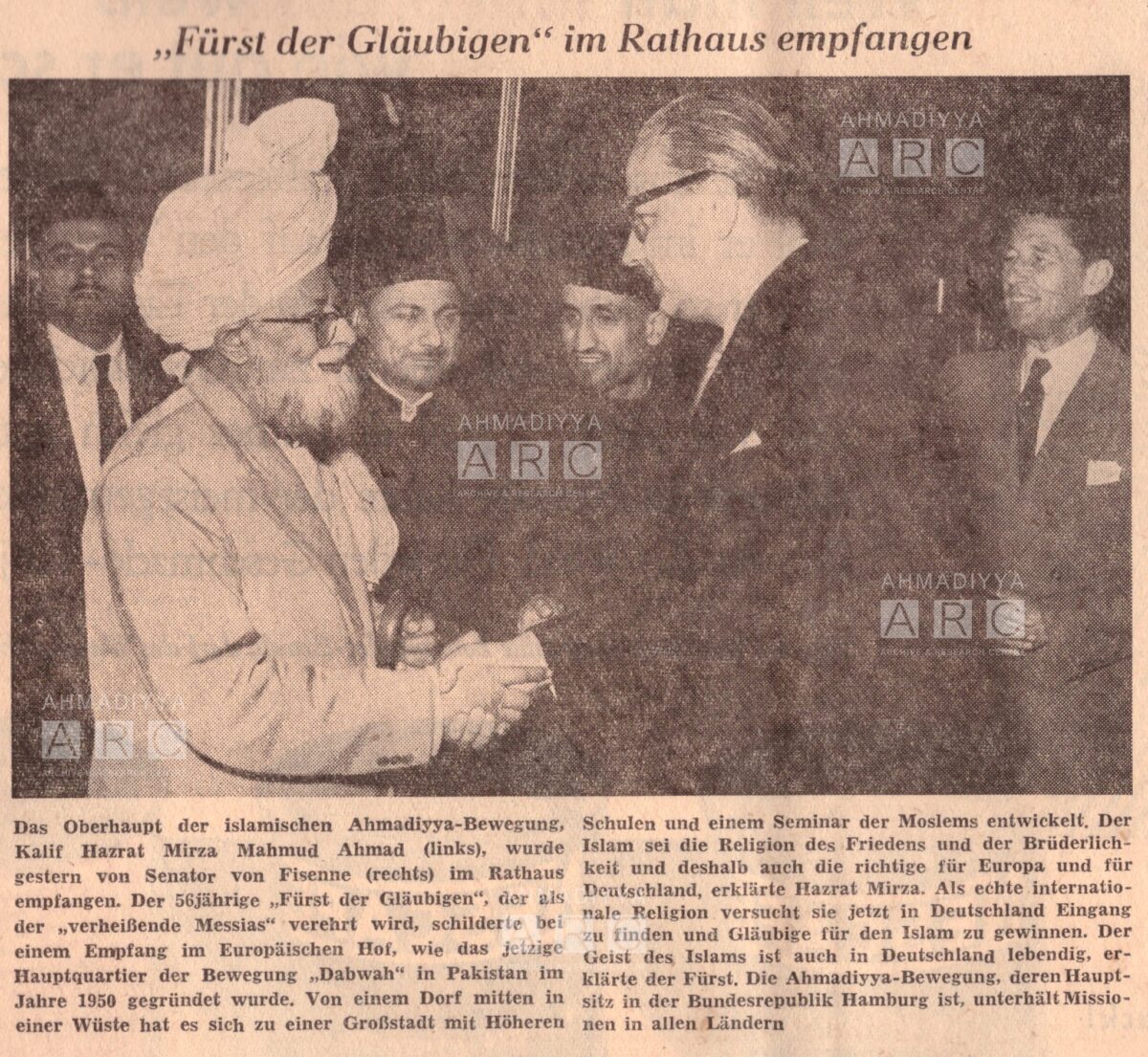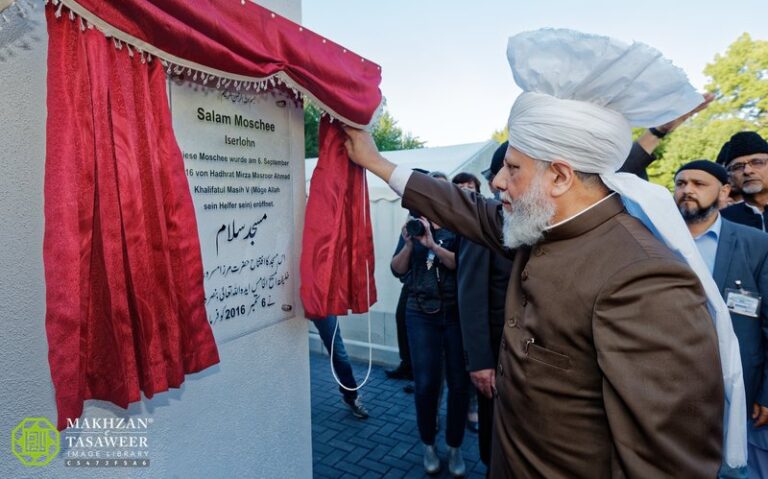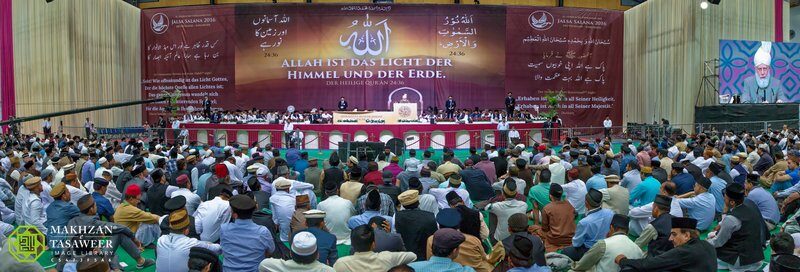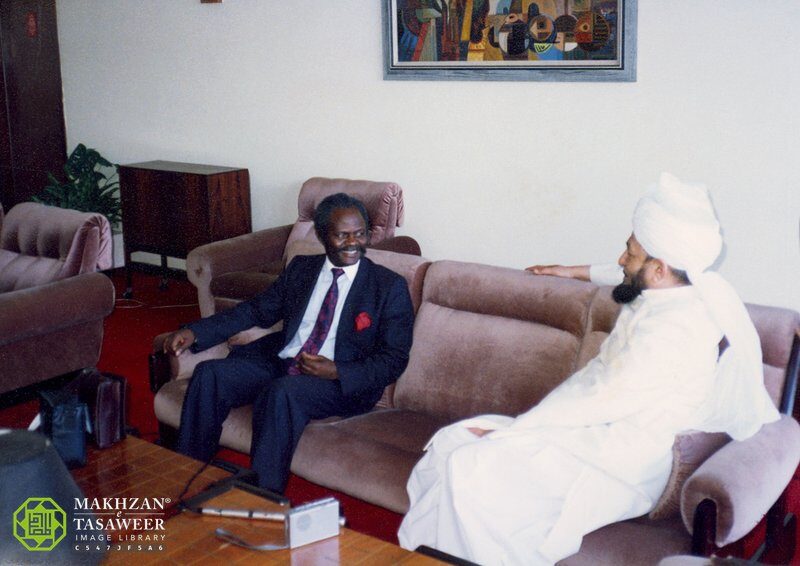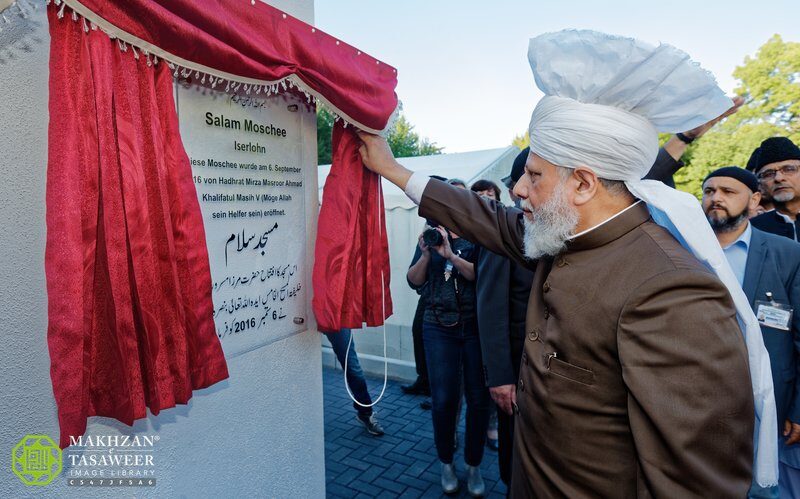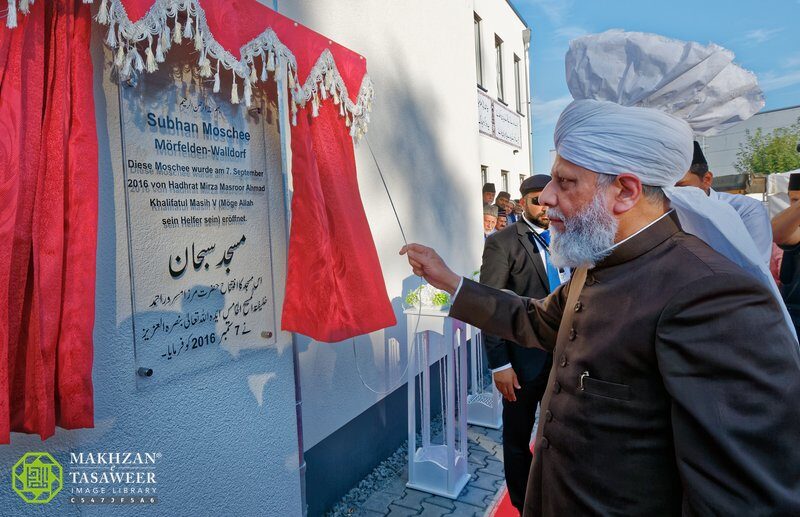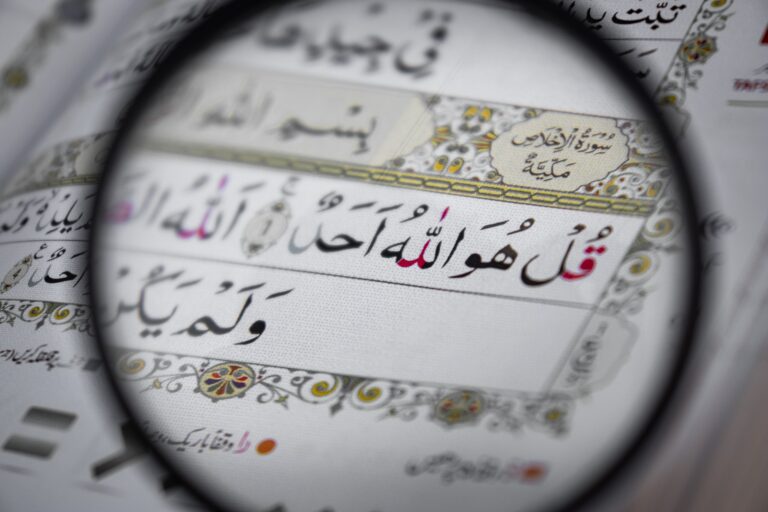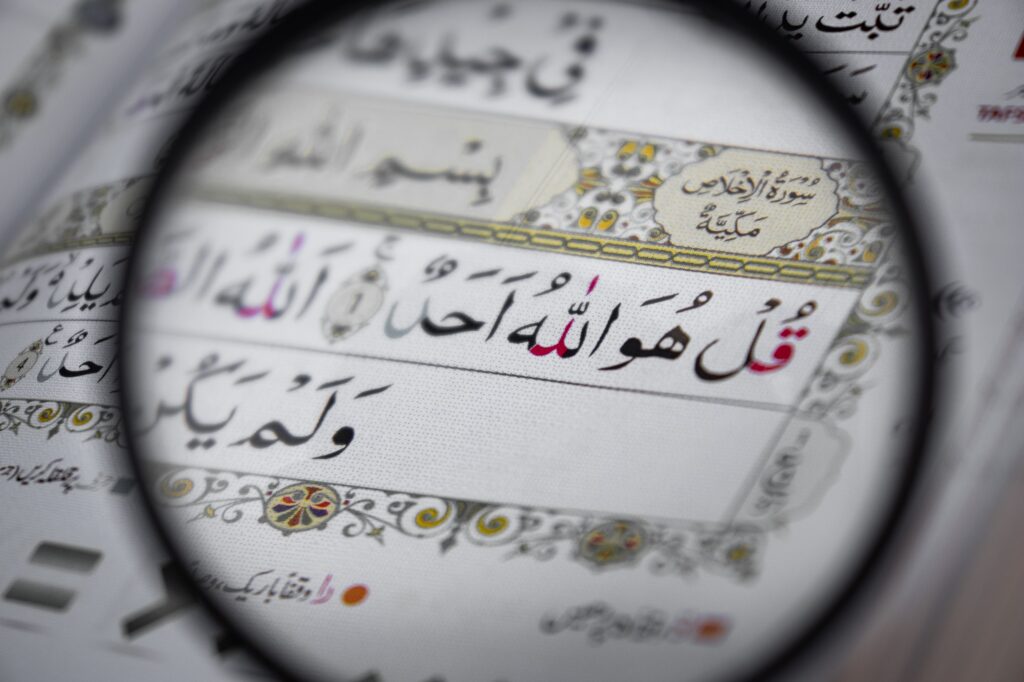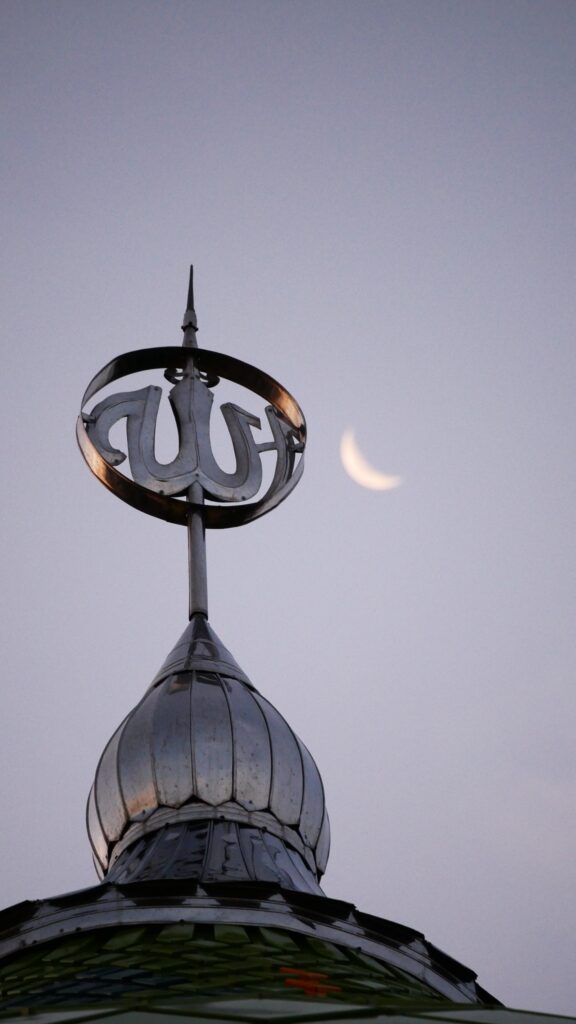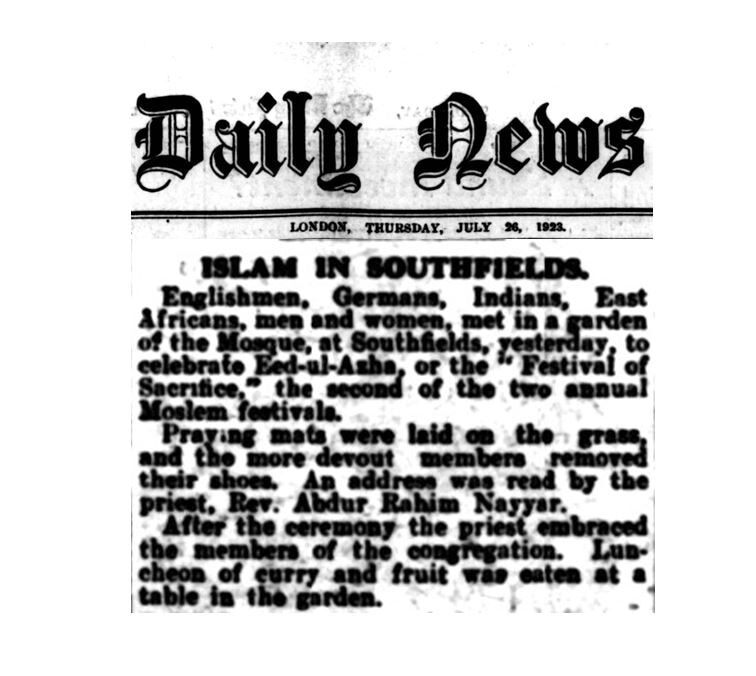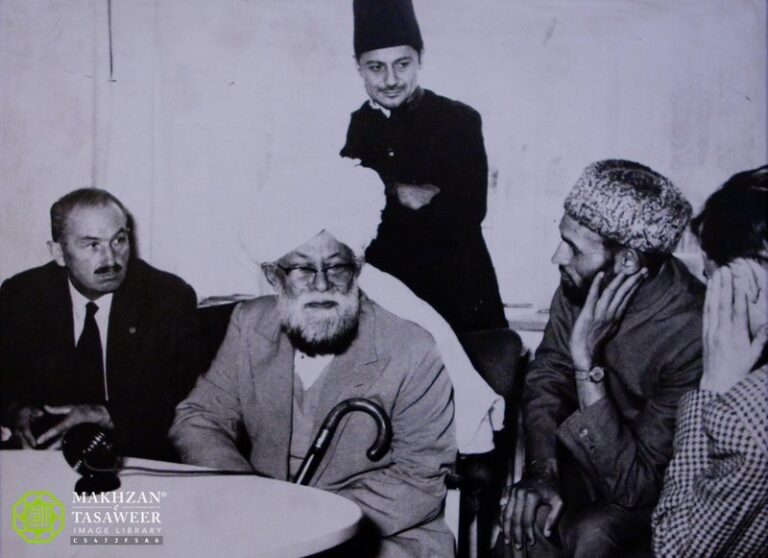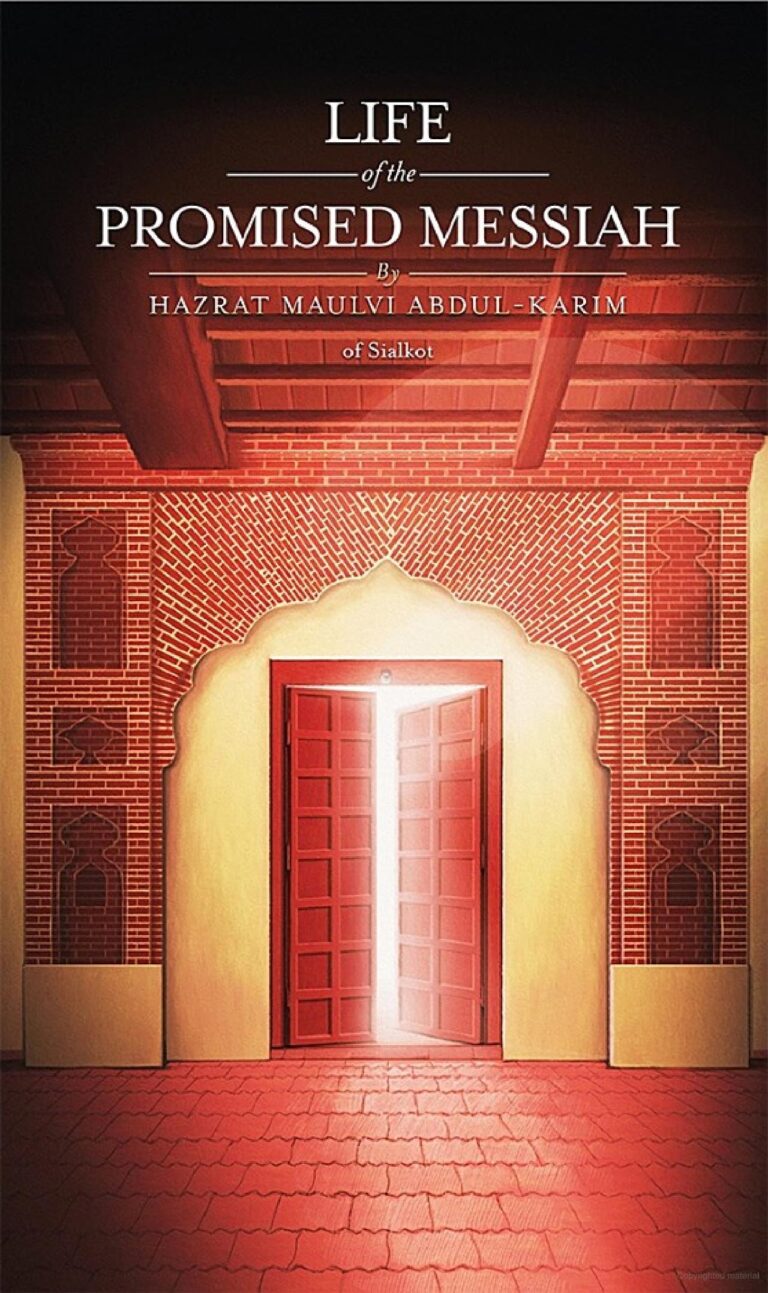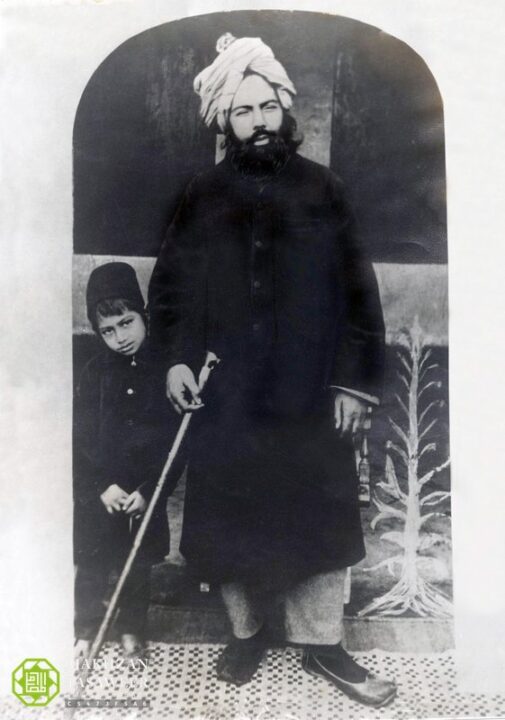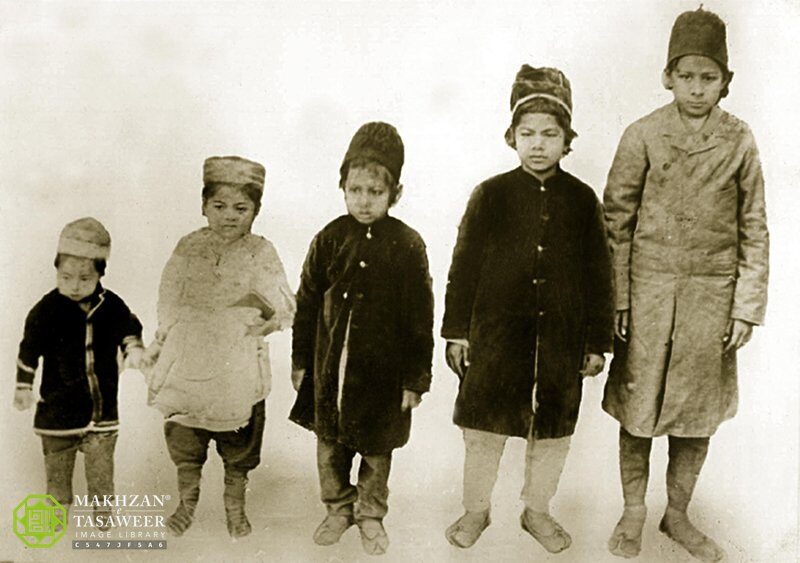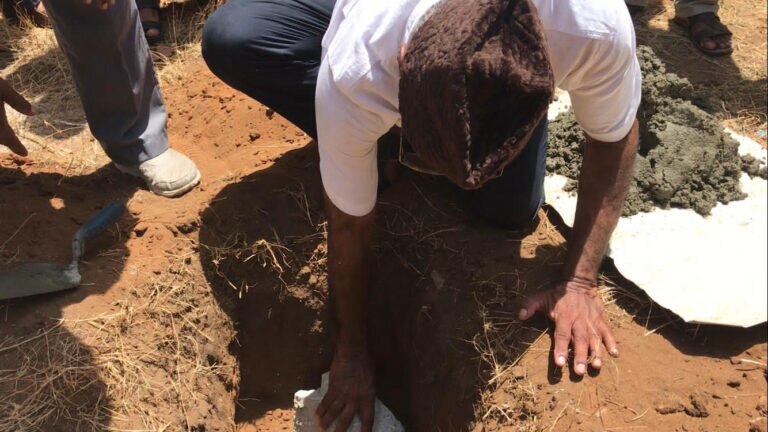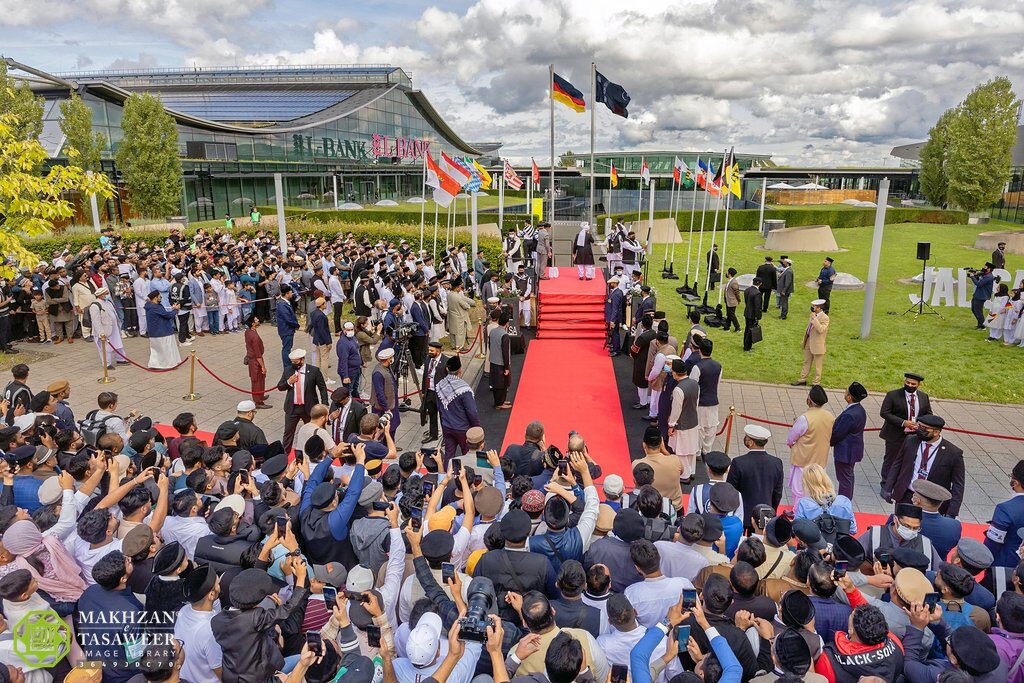
Stuttgart, Germany, 1 September 2023: At approximately 2 pm local time, Hazrat Mirza Masroor Ahmadaa, Khalifatul Masih V arrived to hoist the Liwa-e-Ahmadiyya. After hoisting the flag and leading everyone in silent prayer, Hazrat Khalifatul Masih Vaa made his way into the main Jalsa Gah and delivered the Friday Sermon at Jalsa Salana Germany 2023, a brief summary of which is given below:
Huzooraa began by saying that, alhamdulillah, after a four-year break, Germany Jamaat has got the opportunity to hold their Jalsa Salana on a large scale. They shouldn’t only be happy that they will gather together and meet each other. The main purpose of the Jalsa Salana, as explained by the Promised Messiahas is to progress spiritually and give less preference to the world.
Hundred years have passed since the establishment of Germany Jamaat. Members here are very happy and excited. It is indeed a moment of delight that 100 years ago, the message of the Promised Messiahas reached Germany.
However, we should also focus on what we achieved in these hundred years. Many Ahmadis came here over the years. They came here as Ahmadis because they were hindered from practising their faith in their countries. After they came here and got religious freedom, they should concentrate on progressing in faith, and connecting their children to the Jamaat. If they did all that, then they will truly have the right to be happy after the completion of 100 years.
The Promised Messiahas has advised us about the conditions of bai‘at and our responsibilities. We should focus on how well we are fulfilling our duties. We should be mindful if we have forgotten our objectives or if we are fulfilling every responsibility.
The Promised Messiahas said that those who pledge allegiance should focus on the essence and not the outer shell. He gave the example of an egg. Allah the Almighty does not care about the shell and thus we should not be happy with it. One should make every sacrifice to fulfil the true essence of bai‘at.
One should prefer faith over the world. What is ‘preferring religion over the world’? Is it secluding oneself from the world? The Promised Messiahas said that he did not want the Muslims to become lazy. They should focus on prayers and every practice of religion. The companions of the Holy Prophetsa didn’t leave the world and at the same time stayed completely focused on prayers and faith. One should remember that until one absorbs the true meaning of لا الٰه الا اللّٰه [“There is none worthy of worship except Allah”], one cannot progress in faith. If we leave the book of Allah, we will not progress. Other nations just focus on worldly education and do not put their trust in God’s Book [the Holy Quran]. Surely, Allah the Almighty exists and the Book of Allah is our guidance. The only way to progress is to have complete faith in God Almighty.
Muslims as a whole are not strong because they don’t put their complete trust in God and the teachings of the Holy Quran.
The Promised Messiahas said that people fell prey to the world. However, those who believe in God and trust Him get victory over the satanic parties. One who wants true education should study the Holy Quran. The Holy Quran is an ocean of religious insights and wisdom.
Among us, how many are there who study the Holy Quran and read it with full attention?
The Promised Messiahas said that the Holy Quran did a great service to the nations of earlier prophets. It clarified the false stories that had crept in. Our opponents became hostile because we openly declare that the Holy Quran is the divine light and carries great wisdom. They consider it a story book but we declare that it is full of deep knowledge. So, every Ahmadi should focus on the Holy Quran.
To prefer faith over the world also means to have a great relationship with Allah the Almighty. The way to have a good relationship with God is to worship Him. If we offer prayers and worship Him, only then can we attain the nearness of Allah.
The Promised Messiahas said we should establish a pure relationship with Allah the Almighty. The root of true faith is possessing true love of God. Our trust is in the ways of God Almighty. If one has complete trust in Allah, no one else can harm them. One should offer daily prayers. One should reform oneself if one wants to get the full benefits of their prayers. They should do good deeds and also try all the means. Those who do not find delight in prayers are the ones who do not concentrate in prayers or do not offer salat at all. One should offer prayers with full attention; only then will they get the delight of salat. Those who do not offer prayers consider salat a debt. One should pray that God may grant them the salat of the blessed and righteous people. Those who pray and still do bad deeds do not focus on salat and offer it as a mere habit.
We ought to ensure that we fulfil the obligation of offering salat, as it is incumbent upon us. Should we find ourselves falling short in the practice of prayers, it becomes imperative to focus on self-improvement and diligently safeguard this sacred duty.
The Promised Messiahas elucidated the concept by citing the example of a child who initially perceives words as mere lines and marks. With the passage of time, however, the child gains wisdom and comprehends their significance. In the same way, we ought to persist in offering salat, whilst maintaining our focus upon it.
The Promised Messiahas said that the instructions of the Hakam and Adl should be understood with great respect. One should not be mistrustful, because having faith and trust is the only way to progress. If we have fully accepted the Promised Messiah of the age as the Hakam and Adl, we should obey and follow his commandments.
The opponents did not recognise the Promised Messiahas even after 100 years. We should focus on saving them and try to spread the message of the Promised Messiahas to every person in the world. Hundred years have passed since the establishment of the Jamaat in Germany, but we have not fully conveyed the message of Islam to all the Germans.
The Promised Messiahas emphasised the necessity of disseminating the message of true Islam to both the Arabs and the people of Europe. There remains considerable ground yet to cover in order to fulfil this solemn responsibility.
One ought not to be daunted by the apparent progress witnessed in Europe or the Western world. Instead, it is crucial to bear in mind that our acceptance of Ahmadiyyat is not motivated by worldly gains, but rather to forge a living relationship with Allah
Explaining the purpose of his advent, the Promised Messiahas said that the purpose of his appearance is to spread Tawhid [Unity of God], high morals and spirituality.
One should pray that God Almighty may save and protect us from every spiritual illness. We should focus on moderation.
Hence, these are the things that bring us close to God Almighty. We should look into ourselves if we are following them.
We should also focus on high moral standards. On the inauguration of the mosques in Germany, many people expressed that Ahmadis have good morals.Nonetheless, it is not merely a matter of displaying high morals; following this, one should also take the opportunity to introduce the principles of true Islam Ahmadiyyat to the world.
As articulated by the Promised Messiah, our spiritual progress will become evident when we impeccably honour both the rights of Allah and the rights of His creation. When our own Community, as well as the broader populace, discern a marked distinction in our conduct and our children likewise draw lessons from our actions, then we may consider ourselves truly advanced in faith and spirituality.

Amir Sahib Germany was asking me about their next-century targets and tasks. The few things I have expressed in the light of the saying of the Promised Messiahas should be first looked into if we are following them or not.
Huzooraa then asked the following questions:
Have we truly established a connection with Allah?
Have we obtained the highest levels of worship and prayer?
Are we punctual in our prayers, even if it means leaving our worldly trade, businesses, and jobs?
Or is there simply an emphasis on building mosques?
Are we consistent in reciting the Holy Quran and actively seeking Allah’s guidance and then implementing it?
Are we making our best efforts to attach our children to the Jamaat?
Do we prioritise their religious faith and knowledge alongside their secular education?
Have we fostered a sense of mutual connection among Ahmadis, exemplifying kindness toward one another?
Are we merely displaying high moral standards among non-Muslims and introducing them to true Islam?
Or are we merely just exhibiting good morals to show we are good and peaceful?
Huzooraa pointed out that in many instances when he had the opportunity to address non-Muslims and non-Ahmadis, they expressed that it was their first exposure to the beautiful teachings of Islam.
Therefore, Huzooraa said, it is clear that you are not utilising your relationships to introduce Islam as we should. Hazrat Amirul Momineenaa questioned the purpose of distributing hundreds of thousands of leaflets if they do not effectively introduce Islam. One should first evaluate the standards we have achieved in fulfilling the rights owed to God and His creation. Each individual should conduct their own assessment.
Huzooraa further expounded that as we commence this new century of the Ahmadiyya Muslim Jamaat›s existence in Germany, we must do so with invigorated enthusiasm and an acute focus on spiritual matters. The emphasis should be on prioritising our faith above worldly concerns. We must continually counsel our children and next generations, imparting moral values to them. This passion should be passed down from one generation to the next.
Huzooraa prayed that may Allah the Almighty enable us to do so. Amin.

